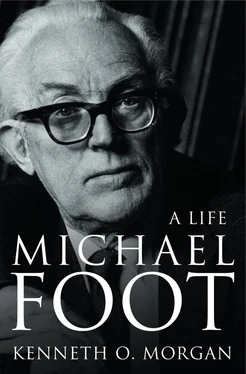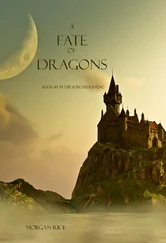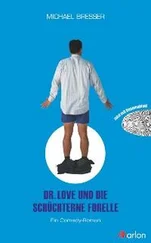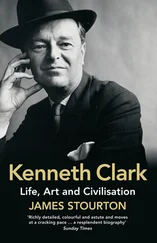Michael Foot’s time in industrial Liverpool was not a relaxed one, and he left after barely nine months. But for ever afterwards he would give this period a legendary Damascus-like status as the time when he first witnessed social hardship and became a left-wing socialist. It is important to try to establish how far the poverty of working-class Liverpool was pivotal in this conversion, and indeed what kind of socialism it was to which he was drawn. Certainly he found his job in the Blue Funnel Line boring and undemanding. He used as much time as he could in making notes on the back of business correspondence on the career and ideas of Charles James Fox. He had hoped that his new job might entail some overseas travel, for which he had now acquired a taste, but none was forthcoming and he was office-bound. Foot told his mother how heartily he disliked all the people he worked with and for. Leonard Cripps was boring, Sir Richard Holt ‘the last word in malignant density’. Others had ‘stunted intelligences’, while the routine duties were ‘dull as ditchwater’. 5
But Liverpool, the first industrial working-class city of which he had any experience, was far more compelling. He found lodgings in a Yiddish-speaking Jewish home which his recent visit to Palestine made congenial. He spent time exploring the shabby backstreets of the dock-side areas. He also transferred his footballing interests, at least for a time, to supporting Everton at Goodison Park. He treasured in later life an ‘Ode to Everton’ that he composed in 1935, which was printed in the Liverpool Daily Post . It laid particular emphasis on ‘Dixie’s priceless head’, a reference to the prolific goal-scoring centre-forward ‘Dixie’ Dean. 6 But crucially, within a month of arriving on Merseyside the old West Country Liberal had joined the Labour Party as an active, ardent crusader and canvasser. (Oddly, in accounts of his career he tends to give 1934, not 1935, as the date of his conversion.) Michael had got religion, and wanted the world to know. Soon he was an energetic participant in the committee meetings and street-corner campaigning of the Liverpool Labour Party. He met congenial comrades here, including two future parliamentary colleagues, Sydney Silverman, an eloquent Jewish lawyer, and the formidable and pugnacious Bessie Braddock and her husband Jack, both ex-Communists. To what extent Michael’s conversion was the consequence of empirical observation might, however, be examined. After all, commentators have wondered how far George Orwell’s famous book of the same period was actually the product of first-hand observation of Wigan Pier. John Vincent once commented in an Observer book review that ‘a man who describes as flabby Lancashire cheese which is crumbly gives himself away at once’.
Without doubt, Michael Foot’s compassionate heart and soul were deeply stirred by the poverty he saw in the dockside community and in Liverpool’s backstreets. It was a maritime city with a weak manufacturing base, and thus very high unemployment, painfully evident on street corners amidst its shabby terraces. Equally clearly, his speeches and articles while at Oxford show a young man moving rapidly leftwards in his revulsion for militarism and dictatorship. His criticisms of socialism in ‘Why I am a Liberal’ are half-hearted questionings of the merits of centralization. Most of his close friends at Oxford – John Cripps, Paul Reilly, Tony Greenwood – were emphatically Labour. And without doubt his acquaintance with Stafford Cripps and the bracing radical atmosphere of ‘Goodfellows’ were a powerful influence too. But, most characteristically, Michael’s conversion came through the medium of books – and indeed not sober works of socio-economic analysis, but imaginative works of fiction. While crawling to his office on Liverpool’s trams, his mind was focused not only on the slums through which he passed but on the books he read on his journey. Arnold Bennett was a particularly powerful stimulant: his How to Live on Twenty-Four Hours a Day (1910) made a lasting impact on the young socialist. It is actually a short book, not at all one of Bennett’s masterpieces, but Foot no doubt appreciated the chapter on ‘Serious Reading’, which lavished great praise on Hazlitt’s essay ‘Poetry in General’ – ‘the best thing of its kind in English’. 7 Foot also read extensively the novels of H. G. Wells, destined to loom alongside Cripps and Bevan as supreme inspirations. Tono-Bungay ’s relatively brief account of socialist ideas was exciting to him, more perhaps for its subtle exposé of the immoralities of free-market competitive capitalism. Bernard Shaw was another important influence, though he was less favoured because of his criticisms of Wells’s Short History of the World . 8 Foot’s was an undoctrinaire ethical socialism, a gospel of words and ideas, similar to that which had impelled young men like Attlee or Dalton into the Independent Labour Party. On more immediate matters, Foot was excited by Bertrand Russell’s Proposed Roads to Freedom . Economic theory does not seem to have interested him. At first he was innocent of connections with Marxism, although by 1937 he was instructing the equally young Barbara Betts (the future Barbara Castle) in the intellectual delights of Das Kapital . His ideology, such as it was, kept its distance from the formal programmes of the Labour Party, still in 1935 trying to redefine its policies after the catastrophe of 1931 had laid bare the emptiness of its economic notions, and perhaps also the wider problem of attempting to modify and humanize a capitalist order which it ultimately wished to abolish.
Nor was Michael Foot a Fabian. He had met Beatrice Webb at Stafford Cripps’s home, and did not take to her admonitory style. He did not become a socialist in order to promote orderly administration by a bureaucratic elite; nor, without a background in local government at any level, was he inspired by the heady vision of ‘gas and water socialism’. The first book by the Webbs that he read, and indeed responded to positively, was their Industrial Democracy , which he read together with Barbara Betts at her Bloomsbury flat. Years later, in 1959, he took sharp issue with the Fabian historian Margaret Cole on the Webbs’ vision of socialism: ‘I think there is running through a great deal of what they wrote … a strong bureaucratic, anti-libertarian attitude which often reveals what I think is a real contempt for those who are engaged in Socialist agitation, protest and activities of that nature.’ He pointed out Beatrice’s patrician absence of interest in the great propaganda work of Robert Blatchford, editor of the early socialist newspaper the Clarion (he might have added her contempt for Keir Hardie and George Lansbury as well). For much of their career the Webbs were unconvinced that the Labour movement was the instrument of change, rather than a generally-defined ‘permeation’ and gradualism. Revealingly, Foot added as a criticism the Webbs’ uncritical adulation of the Soviet Union and Communist doctrine, in contrast to the far more critical approach of his old journalist friend and mentor H. N. Brailsford, historian and intellectual guru of the socialist left. 9 Foot’s conclusions appear to endorse many of H. G. Wells’s assaults on the Fabian high command in the Edwardian period, and the general line of criticism indicated in one of his favourite books, The New Machiavelli . It was a battle of the books which Margaret Cole was most unlikely ever to win. For Foot, then, socialism was a greater liberalism, a doctrine of social and aesthetic liberation. It implied new values and a new society. It made Michael in time the natural disciple of the imaginative crusader Aneurin Bevan and the natural husband of the cultural socialist, Jill.
Читать дальше












